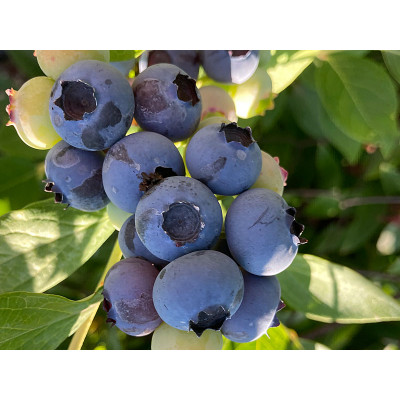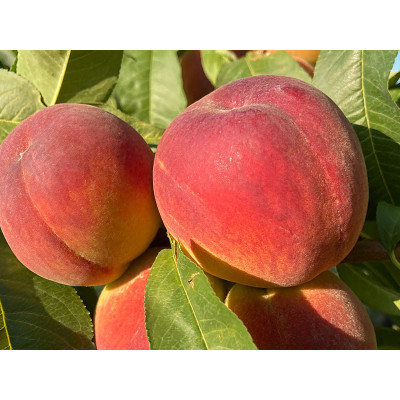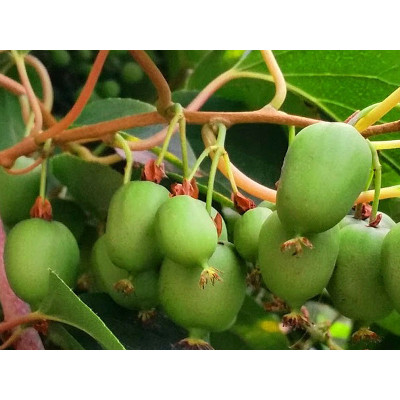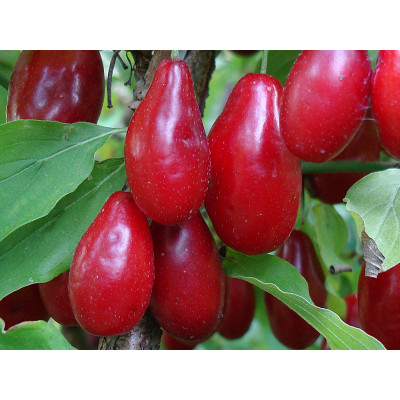Odolné jablone sú riešením pri vrtochoch počasia, mrazoch a proti chorobám

Je viacero faktorov, ktoré nám pri pestovaní ovocných stromov pridávajú vrásky na čele. Vrtochy počasia, skoré jarné mrazy, a s tým spojené znehodnocovanie kvetov budúcich plodov, sú problémom, s ktorým sa pasuje nejedna záhrada, aj ovocné sady ovocinárskych podnikov. Mrazuvzdorné odrody jabloní, ktoré majú pritom vlastnosti určitej odolnosti voči mrazom aj na kvetoch, môžu byť vhodným riešením. Riešením toho, ako šetriť námahu, čas, aj všetko úsilie pri opatreniach voči mrazom. Odolné jablone však svoje pomenovanie o odolnosti nemajú len kvôli nízkym teplotám a ohrozeniu dreva a kvetu mrazmi.
Odolnosť voči chorobám je pre niektoré odrody veľkým plusom
Mať v ovocnom sade rezistentnú jabloň bez zdravotných ťažkostí a takú, ktorá ľahko podľahne bežným ochoreniam, vie svojim kontrastom zaujať pozornosť. Ten rozdiel ale nemusí byť len o účinnom a neúčinnom chemickom postreku. Rozdiel môže byť tvorený osobitými vlastnosťami jednotlivých odrôd. Rezistentné jablone na tutifruti.sk zložené z nových generácií jabloní sa pýšia rezistenciou voči chrastavitosti (Venturia inaequalis), múčnatke (Podosphaera leucotricha) a spále (Erwinia amylovora). Tri podstatné zdravotné ťažkosti, ktorým je možné vyhnúť sa výberom niektorej z jabloní v ponuke.
Výber takýchto stromov nie je obmedzený len na určité farby, skladovateľnosť a vzrast. V ponuke sú stromy stĺpovité, vhodné pre malé záhrady ( Aroma Spur GELB-ROT, Aroma Spur Gold, Aroma Spur Grun, prípadne známa odroda s dobrou skladovateľnosťou plodov Redcats, a ďalšie) aj stromy s klasickou objemnou korunou a rastom.
Atraktívnou je odroda Ladina, ktorá je krížencom odrôd Topas a populárnej odrody Fuji. Strom odolný voči hubovým ochoreniam zaujme kvalitnými plodmi skladovateľnými v pivnici až do februára. Pomalšie rastúca Rebella zaujme odolnosťou aj voči niektorým škodcom. Silnejším rastom sa vyznačuje Santana. Nespornou výhodou ponúkaných stromov je fakt, že sú ponúkané v kontajneri. Nejde o voľné korene, čo umožňuje vysádzanie jabloní aj počas kvitnutia, či rodenia plodov.
BIO ako životný štýl aj zásada výživy
Práve rezistentnosť jabloní je príležitosťou pre ekologické pestovanie bez využívania zbytočnej chémie. Pestovatelia uprednostňujúci tzv. „BIO“ podmienky pre pestovanie, môžu oceniť práve také stromy, ktoré pre svoj zdravý rast, úrodu a zachovanie vitality celej rastliny nepotrebujú podporu v podobe chémie. Ľudia so závažnými ochoreniami, citliví na používanie chémie, ale aj ľudia nároční na konzumáciu plodín pestovaných v biologicky, či presnejšie ekologicky čistom prostredí.
V každom prípade, aj strom, ktorý nepotrebuje zásadné chemické ošetrenie, ocení pravidelný strih a pôdu priepustnú, bohatú na živiny, alebo hnojenie prírodnými hnojivami, kompostom a pod. Ďalšou vítanou vlastnosťou odolných jabloní je pri mnohých druhoch rýchly nástup mladých stromov do rodivosti. To znamená menej čakania na plody vašej práce v záhrade a radosť z plodov, ktorá príde skôr.


























































